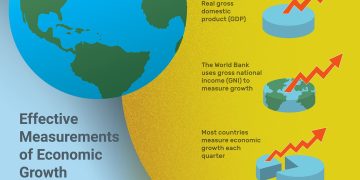Introduction
- Context and Background:
- The rapid growth of technology companies, particularly in the fields of social media, artificial intelligence, and data analytics, has led to significant economic and social influence by a few major players such as Amazon, Google, Apple, Microsoft, and Facebook (now Meta).
- The expansion of these companies has led to growing concerns over monopolistic practices, privacy issues, market concentration, and their impact on democratic values. In response, U.S. regulators, including lawmakers, the Federal Trade Commission (FTC), and the Department of Justice (DOJ), are increasingly turning their focus on reforming the regulatory framework to curb abuses of power and ensure fair competition.
- Purpose of the Article:
- This article aims to explore the impact of new and proposed U.S. regulations on big tech companies, examining how these regulations may affect their business models, innovation processes, market dynamics, and their broader societal impact. It will analyze potential challenges and opportunities posed by regulatory changes for big tech firms and innovation in the U.S.
Section 1: Overview of the U.S. Tech Industry and the Need for Regulation
- The Rise of Big Tech:
- Outline the historical development of major U.S. tech companies and their expansion into global markets.
- Discuss their market share and dominance in various sectors, from search engines (Google), social media (Facebook), e-commerce (Amazon), to cloud computing (Microsoft, Amazon Web Services).
- Highlight how big tech’s influence extends beyond business, affecting politics, culture, and even national security.
- Why Is Regulation Needed?:
- Antitrust Concerns: The concentration of market power among a few large tech firms has led to concerns about anti-competitive behavior, such as predatory pricing, monopolistic practices, and stifling innovation from smaller competitors.
- Privacy and Data Protection: The collection and use of vast amounts of personal data by tech companies have raised alarm about privacy violations, surveillance capitalism, and the lack of consumer control over their information.
- Disinformation and Harmful Content: The unchecked spread of disinformation, hate speech, and harmful content on social media platforms has led to concerns about the negative societal impact, particularly on elections, public health, and social stability.
- Consumer Welfare: Regulatory concerns about how big tech’s dominance affects consumer choice, prices, and the availability of diverse products and services.
Section 2: Key Regulatory Areas and Proposals
- Antitrust Regulations:
- The Debate on Antitrust Reform: Discuss the renewed focus on antitrust laws, particularly the push to break up monopolistic tech giants or impose stricter regulations on mergers and acquisitions. Key legislative proposals such as the American Innovation and Choice Online Act and the Platform Competition and Opportunity Act aim to prevent tech companies from favoring their own products or services over competitors’.
- Historical Precedents: Look at previous antitrust cases like the Microsoft case in the 1990s and the Google antitrust suit in 2020, and how they set the stage for current discussions.
- Data Privacy and Protection Laws:
- The California Consumer Privacy Act (CCPA) and its role in inspiring national data privacy laws.
- The Federal Data Privacy Framework: Discuss the potential for a national data privacy law, drawing comparisons to Europe’s General Data Protection Regulation (GDPR).
- The Right to be Forgotten: Explore how these regulations could impact the data collection and usage models of big tech firms like Google and Facebook.
- Content Moderation and Disinformation:
- Section 230 of the Communications Decency Act: Examine the debate over whether Section 230 should be repealed or reformed. Section 230 currently shields platforms from legal liability for user-generated content, which has been critical in enabling social media platforms to flourish but has also led to issues with harmful content, disinformation, and hate speech.
- Proposed Reforms to Content Moderation: Review proposals that would require platforms to be more transparent in their content moderation practices, such as disclosing their algorithmic processes and moderating harmful content more aggressively.
- Artificial Intelligence (AI) and Algorithmic Accountability:
- AI Regulation: Discuss the growing concern over the ethical implications of AI, especially in areas like facial recognition, autonomous vehicles, and hiring algorithms. The Algorithmic Accountability Act is a key proposal aimed at increasing transparency in automated decision-making.
- Bias and Fairness: Consider the challenges of ensuring that AI systems are unbiased and equitable, and the role of regulation in preventing discriminatory outcomes, particularly in hiring and criminal justice applications.
Section 3: Impact on Big Tech’s Business Models
- Operational Changes:
- Compliance Costs: Detail the expected financial and operational costs that big tech companies may face in complying with new regulations. This could include expenditures on legal teams, compliance departments, and system overhauls.
- Mergers and Acquisitions: Analyze how stricter antitrust regulations could impact big tech’s ability to engage in mergers and acquisitions, which have been a key strategy for growth and expansion.
- Data Handling and Security: Explore how data privacy laws would force companies like Facebook and Google to rethink their data storage, processing, and sharing policies, with an emphasis on securing consumer data.
- Innovation and Product Development:
- Slowing Down Innovation: Debate whether stringent regulations could stifle innovation by increasing the regulatory burden on tech firms or restricting certain business practices (such as cross-promotion of services).
- Innovation in Regulatory Compliance: On the other hand, new regulations could spur innovation in areas such as secure data storage, privacy-first technology, and content moderation tools that align with legal requirements.
- Global Impact:
- How U.S. regulations could affect the global operations of big tech companies, especially with cross-border data flows, international trade, and regulatory standards in other regions (such as GDPR in Europe).

Section 4: Potential Risks and Challenges for Big Tech
- The Risk of Over-Regulation:
- Consider the potential downsides of over-regulating the tech industry, such as creating barriers to entry for new players or stifling competition.
- Global Competitiveness: Explore how U.S. regulations might place American tech companies at a disadvantage compared to their international competitors, particularly in countries where regulation is more lenient.
- Innovation vs. Consumer Protection:
- Address the tension between fostering innovation and ensuring consumer protection. Some argue that regulation could lead to excessive caution from tech companies, potentially hindering advancements in areas like AI, blockchain, and the metaverse.
- Political and Social Implications:
- Examine the broader political and social consequences of regulating big tech. Could regulation be used as a tool for political purposes or to suppress free speech? How might different political parties view the role of regulation in controlling big tech?
- Public Trust: Discuss how big tech’s growing mistrust among the public might influence the regulatory process, and whether regulations will restore confidence in the tech industry or further damage its reputation.
Section 5: Opportunities for Big Tech Amidst Regulation
- Adapting to New Rules:
- Explore how big tech companies might adapt to new regulations by improving transparency, ensuring better privacy controls, and enhancing their customer service models.
- Opportunities for Ethical Tech: Regulatory changes could push tech companies to become more ethical in their business practices. Companies that prioritize consumer privacy, tackle disinformation, and foster competition might benefit from positive public perception and increased customer loyalty.
- Emerging Business Models:
- New regulations could drive big tech companies to innovate in ways that are more consumer-friendly and compliant with ethical standards. For example, companies could introduce new privacy-enhancing technologies or pivot to subscription-based models that rely less on advertising revenue.
- Collaboration with Regulators:
- Some tech firms may seek to work alongside regulators to shape new policies that protect consumers while allowing innovation to thrive. Such collaboration could lead to more balanced regulations that support both growth and societal well-being.
Section 6: The Future of U.S. Tech Regulations
- Evolving Regulatory Landscape:
- Discuss how U.S. tech regulations are likely to evolve in the coming years, particularly in response to new technological developments such as AI, quantum computing, and blockchain.
- The Role of Congress: Consider the role of Congress in shaping regulatory policies, including the push for bipartisan support on key issues like privacy and antitrust.
- Global Trends:
- How the regulatory framework in the U.S. may influence global tech policies, particularly in Europe and Asia, and how multinational companies will navigate an increasingly fragmented regulatory environment.
- Potential for Reform or Backlash:
- Explore the possibility that the current wave of regulation could be reversed or adjusted due to the growing influence of big tech lobbying efforts, or alternatively, could expand as public dissatisfaction with big tech continues to grow.
Conclusion
- Summary of Key Points:
- Recap the key challenges and opportunities presented by new regulations for big tech, including the potential impacts on business models, innovation, competition, and consumer welfare.
- Long-Term Impact on Innovation:
- Emphasize that while regulation could introduce short-term hurdles for big tech, the long-term impact may ultimately foster a more competitive, ethical, and consumer-focused tech ecosystem. Regulations may not stifle innovation but could redirect it towards more responsible, sustainable practices.
- Call to Action:
- Urge policymakers to strike a balance between protecting consumers and fostering an environment that allows innovation to flourish. For big tech, the challenge lies in adapting to regulations that ensure fair competition, ethical practices, and the protection of privacy, while still remaining at the cutting edge of technological advancement.



































